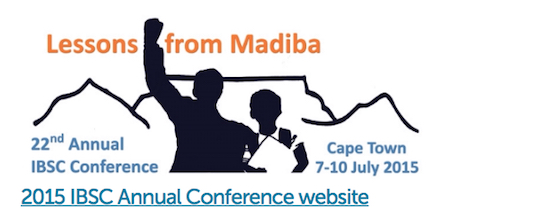
Single-sex education and Constitution: legal reflections before an ideological debate
The following article by Miguel Rodríguez Blanco, Professor of Ecclesiastical Law in Universidad de Alcalá, was published on 9th December 2022 in Nueva Revista.
On November 18, 2022, the Judiciary made public the news that the Superior Court of Justice of Navarra had made the decision to raise a question of unconstitutionality on the rule that forbids signing educational agreements with centres that adopt differentiated education systems by reason of sex. Reactions of all kinds did not wait. The supporters of the unconstitutionality of the measure celebrated the decision as a triumph of their theses, as if the doubt of the Navarrese court already entailed the confirmation of their postulates, while the defenders of the regulations that exclude the centres that separate their students based on sex, they criticised the position of the judicial body, as if it were not legitimate, even, to have doubts about it.
The decision of the Superior Court of Justice of the Foral Community does not put the Constitutional Court before a new situation, but rather adds to the unconstitutionality appeals that the Popular and Vox parliamentary groups presented, among other precepts, against the wording that the Organic Law 3/2020, of December 29 (hereinafter, LOMLOE) gave the twenty-fifth additional provision of Organic Law 2/2006, of May 3, on Education, according to the first section of which "in order to promote the equal rights and opportunities and promote effective equality between men and women, the centres supported partially or totally with public funds will develop the principle of coeducation in all educational stages, in accordance with the provisions of Organic Law 3/2007, of 22 of March, for the effective equality of women and men, and they will not separate the students by their gender”. It should be remembered that article 13.2 of Law 15/2022, of July 12, comprehensive for equal treatment and non-discrimination, provides that "in no case, educational centres that exclude from entering them, discriminating against them, to Groups or individual persons due to any of the causes established in this law, may benefit from any form of public financing”. This precept has also been appealed by the Vox parliamentary group before the Constitutional Court.
There are particularly sensitive legal issues. Education is one of them. It is nothing new to affirm that article 27 of the Spanish Constitution of 1978 (hereinafter, SC) was forged on the basis of a delicate and unstable minimum agreement. The controversies that have surrounded all the educational laws that have developed this precept is a palpable manifestation that it reflected a merely temporary commitment and that each political tendency guarded weapons pending the necessary legislative development.
Educational public liberties
The issue of single-sex education is not one of the most important in the context of the educational model. There are few centres, in the system as a whole, that adopt this pedagogical approach. There are other issues, such as the legal regime of subsidised centres, the curricular contents of basic and compulsory education, the language used in the classroom, regional powers or the teaching of religion, which are of greater importance. However, in the debate about single-sex education, some of the main issues that concern educational public liberties converge, so it is convenient to correctly situate the terms of what is at stake.
It is almost a commonplace to say that when the scope of the right to education and the content of freedom of education are addressed, the ideological postulates immediately emerge. Specifically, on the subject of single-sex education, it seems that it is necessary to position oneself in favour or against. Once this starting position has been established, the work of the legal specialist who approaches this issue would consist of seeking arguments to disqualify the opposing position and charge their own reasons. In general, this is not the function of the lawyer. At least, that of the researcher who analyses reality and the rules in order to offer considered judgments that allow the different positions to be adequately valued and maximise the fundamental rights proclaimed by the legal system.
If we situate ourselves on the strictly technical-legal level, it could be affirmed that we are facing a resolved issue. In two judgments of 2018, 31/2018, of April 10, and 74/2018, of July 5, the Constitutional Court made three statements:
a) first, that centres with differentiated education systems based on sex are not prohibited by the SC, provided they meet a series of requirements that are summarised in the equivalence of content and media;
b) second, that it is constitutional for these centres to form part of the educational concert system and receive public funding;
c) third, the impossibility of excluding these centres from the concert system solely for the reason that they adopt a differentiated education system.
It is true that these statements by the highest interpreter of the SC were far from unanimous. Both sentences had dissenting individual votes that questioned both the conclusion of the court and the argumentative process followed. Some of those votes, staunchly critical of the majority, emphatically rejected differentiated education, which it qualifies as a model of segregation contrary to both the right to equality and non-discrimination as well as the so-called constitutional educational ideology included in article 27.2 EC. Other magistrates, less forceful in their positions rejecting this pedagogical model, limited themselves to disagreeing with the possibility that these centres receive public funds, but did not question their admissibility in our educational system.
It is surprising that the LOMLOE ignored the theses of the Constitutional Court, when between these pronouncements and the gestation of the law a short period of time had passed, without it being possible to allege social or legal changes that justified the legislative measure. It seems rather that the legislator adopted a countermeasure for not agreeing with the conclusions of the guarantor of constitutionality. Logically, the Constitutional Court should now rule in favour of the unconstitutionality of the exclusion of single-sex education centres from the concert system. But it is evident that nothing prevents it from changing its position and no one is unaware of its situation of paralysis on controversial issues pending ruling, nor the renewal process in which it is immersed. A rebalancing of the tendencies of the magistrates could favour a change of position that would qualify or correct their theses of 2018. The pronouncements of the courts are not immovable and the reciprocal influence between Law and society entails the permanent evolution of the legal system. If this statement is indisputable, it is also true that the essential content of fundamental rights should not be exposed to the fluctuations of politics and the balance of parliamentary majorities.
The truth is that the position of the Constitutional Court on single-sex education has been the subject of strong criticism and various voices have denounced that it exceeded its pronouncements to the point of turning into a general rule what should be an authorised exception with narrow margins. Something like a complete inversion of the terms: from being single-sex education something exceptional subject to strict limits, it was declared the impossibility of excluding these centres from the educational concert system.
Failures found in the position of the Constitutional Court
Let's see what are the pending issues and the flaws found by the legal doctrine in the position of the Constitutional Court:
1st. The Court has not ruled on whether coeducation or mixed education constitutes a constitutional requirement in the case of public education. It is not essential to address this question directly to answer the question of whether private schools that separate students based on sex are constitutional, but there is no shortage of voices that demand a position on this issue from the interpreter of the Constitution to eradicate all doubts about it.
2nd. There are contradictions regarding the legal basis of differentiated education. It is blamed on the Constitutional Court that in judgment 31/2018 it placed this issue in article 27.6 SC, the freedom to create centres by subjects of private law, while in judgment 74/2018 it based it on article 27.3 SC, the right of parents to choose the religious and moral education that will be given to their children. It must be taken into account that the first of the sentences resolves an appeal of unconstitutionality that questioned the conformity with the SC of single-sex education, while the second resolves a writ of protection in which the violation of the right of parents to choose the type of education they deem appropriate for their children. In our view, when a subject of private law initiates the creation of an educational centre whose pedagogical model involves separating students in classes based on sex, he is exercising the right of article 27.6 SC. On the other hand, when parents choose a centre of these characteristics for their children, they fall within the framework of article 27.3 CE and other related ones such as 16.1, which proclaims ideological and religious freedom. It will be necessary to see in each case what are the limits that are applied to the rights at stake, but it does not seem that on this point the Constitutional Court has incurred in inconsistencies that detract from its arguments.
3rd. The Constitutional Court has been criticised for changing the interpretation of Article 27.9 CE, which includes a right of legal configuration without it being possible to affirm that private centres have a recognised right to public funding, since the concert system as such is not even provided for in the SC. It seems clear to us that the legislator has a margin of action to configure the system of public aid to private educational centres and that it is not correct for the Constitutional Court to curtail that competence of the legislative power by configuring a certain development of the Magna Carta as the only possible one. Having said this, it is also clear that the freedom of the legislator when it comes to designing the requirements that educational centres must meet to access public financing is not absolute, in the sense that they must respect constitutional rights. If a certain type of centre is excluded from the concert regime, it will be necessary to give solid legal reasons not to cause discrimination in the exercise of the right recognised by article 27.6 SC and not to unlawfully restrict the right that article 27.3 SC grants to fathers.
4th. Single-sex education is questioned from the perspective of the prohibition of discrimination based on gender and sexual identity, because it would leave out minors who do not identify with any of the traditional binary genders (male/female). Every private educational centre, whether subsidised or not, must make its ideology and pedagogical model public so that potential students (and their parents when they act in the exercise of parental authority) know what they are going to find. There is no fundamental right to enrol in a specific centre. The educational system offers enough options to people so that they can go to school according to their orientations, personal characteristics and beliefs. We do not believe that the gender argument is decisive, since there is freedom of choice of educational centre and no one is forced to enrol in a center with a single-sex education system.
5th. The Constitutional Court has also been blamed for maintaining the impossibility of excluding centres with single-sex education models from the concert system, it has restricted the powers that correspond to the Autonomous Communities to configure the concert model in their respective territorial area. The debate on the decentralisation of the educational system is not easy and it is known that many voices claim the need for a greater unification of the model throughout the national territory. Apart from this debate, which goes beyond the subject at hand, it is not worth forgetting the scope of Article 149.1.1 SC, which attributes to the State the power to regulate the basic conditions that guarantee the equality of all Spanish in the exercise of rights and compliance with constitutional duties.
Coordinates of the legal debate
Based on these pending or controversial issues, which would show the weaknesses, inconsistencies or excesses that the Constitutional Court would have incurred in in the opinion of some in 2018 and which would be the pending issues that would justify reopening the issue, we are going to try to offer the reader the legal coordinates in which, in our opinion, the legal debate should take place.
First: the weighted and respectful analysis of options promoted by the social initiative and chosen by some parents for their children. The norm must not fall into euphemisms, but it must be an example of correctness, moderation and respect. It does not seem correct to classify centres that separate children based on sex as models of segregated education. It means assigning them a pejorative label and accusing their owners, teachers and the parents who choose them of introducing minors into an environment of segregation and discrimination. Things too serious to affirm without objective evidence that proves it reliably.
Second: it must be taken into account that each section of Article 27 SC does not constitute a watertight compartment, but that the entire precept must be interpreted as a whole, so that the conclusions reached with respect to each of its points have to take into account the meaning of the rest. Likewise, the regulation of the right to education is not an island in the middle of the Magna Carta and its application must take into consideration other constitutional precepts and the content of international human rights treaties signed by our country.
Third: the constitutionality of the legislative measures that affect single-sex education must be analysed from the perspective of the rights of the subjects affected by them. This will make it possible to assess all the rights that concur in the subject and not make a biased analysis that marginalises or does not duly weigh legitimate interests protected by the legal system. Faced with political opinions and ideological with respect to a certain pedagogical model, the rights of individuals, parents and minors themselves are raised. Little thought has been given to the best interest of the minor in this area and his own criteria.
When a person -a parent, the student himself- chooses a single-sex education centre, he is exercising the right to education and the rights related to it, such as religious freedom. Restricting that option on the basis of presumptions or final programming rules, no matter how legitimate and laudable they may be, does not seem justified. The LOMLOE justifies the measure that is the subject of controversy in order to "promote equal rights and opportunities and promote effective equality between men and women". This purpose does not admit discussion, but it is necessary to ask whether the means used are legitimate, proportionate, necessary and justified.
Of course, mixed education is not in itself a sufficient condition to achieve these ends, as evidenced by the data on segregation, discrimination, harassment or violence present among the younger population. Many other measures and initiatives need to be put in place. The key question is: is mixed education a necessary condition for an inclusive education to take place and to promote effective equality between men and women? The answer to this question must provide reliable data and not mere opinions, no matter how well argued they may be. Are those who are formed in single-sex classes worse citizens? Do they have values and attitudes contrary to equality and the right to non-discrimination? Has the information transmitted in this regard in the classrooms of these centres been analysed?
The general and a priori restrictions of fundamental rights based on conjectures and opinions do not fit well with our constitutional model. For the rest, it cannot be forgotten that the training of citizens does not take place exclusively in schools. Among other important factors, families, the social environment, the media, ideological groups or religious denominations have an influence on it. The exercise of fundamental rights should not depend on the economic capacity of families. Nor should it give in to paternalistic positions of the State that limit the autonomy of its holders, the free development of their personality and their ability to make decisions that affect them.
The LOMLOE has introduced far-reaching reforms in our educational model. Some related to subsidised centres represent an unprecedented change in trend and enter the hard core of the rights proclaimed in articles 27.3 and 27.6 SC. It may happen that single-sex education is a controversial issue that attracts the attention of the spotlight, while other more important issues go unnoticed. In any case, it would be desirable for the Constitutional Court to take advantage of the opportunity that has been offered to it, whatever its final pronouncement, to better outline the scope of the right of parents to choose the type of education that will be given to their children and the positive obligations of the public powers in this regard to prevent ideological tendencies, of whatever sign, from instrumentalising the educational system in favour of political interests to the detriment of public liberties recognised in the SC and in international human rights texts.



